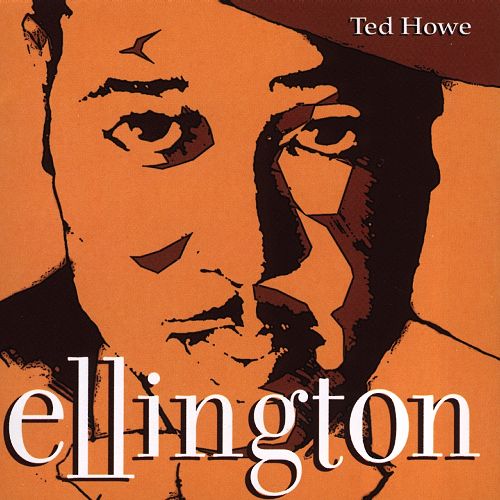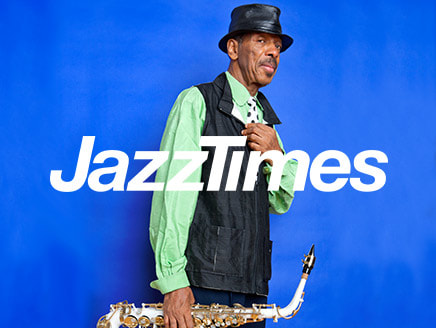|
Ted Howe's tribute album, Revealing the Jazz Soul of Elton John, takes a piano excursion through territory that few jazz artists find the time to consider. Howe's trio transforms each pop song into a straight ahead jazz medium filled with the swing and sway of Elton's gentle emotions. In Howe's hands, pop music swings like Ellington and sways like Basie. Howe explores each melody with finesse. Partnering with acoustic bass and drums, he settles in comfortably with each lingering melody. The session runs smooth and gentle, with creative fires burning on high heat. Two tracks which add Latin percussion to the formula sizzle with more intensity than the rest. Howe likes to build his phrases and let them diminish in caressing waves that rise and fall with subtle emotion. John Patitucci's soulful solo lines weave among Howe's swirling piano melodies, creating a pleasant affair. Life is simple. There are no problems to consider. Just enjoy the music without regrets. After all, Elton John's songs do deal with our emotions in a relaxed manner. It's all about reflection and finding answers to our problems.
- Jim Santella  Pianist Ted Howe missed the centennial of Duke Ellington's birth by six years with this release. In late '98 and '99 there were more tributes to the Duke spinning around out there than you could count. I don't recall anybody honoring Ellington via the piano trio route, though, and Duke himself rarely recorded in the format— Money Jungle (Blue Note, 1962), with bassist Charles Mingus and drummer Max Roach, stands out as an exception. On Ellington, the pianist and his trio give ten of Duke's most beloved compositions the piano trio treatment, delving deep into the Ellington songbook with an informed gusto. Their respect for the music is obvious, with Howe and Company employing an array of styles from deep blues to sensual Latin and a gorgeously, dreamily classical take on "A Sentimental Mood." "In My Solitude" has a gentle, lilting Brazilian feeling, featuring drummer Jerry Fields on cajon, and "Mood Indigo" features bassist Neal Starkey taking the lead on melody. Howe began this recording as a set for use by the Ruth Mitchell Dance Theatre, as music for the purpose of choreographing his "Ellington Show." Then this CD happened along the way. Sometimes when an artist isn't sitting down with the expressed desire to create timeless art, timeless art happens anyway. It did here, in an extraordinarily fine tribute that gets to the core truths of the songs while giving those truths new perspectives— Ellington done with a deft mix of reverence and innovation.
- BY DAN McCLENAGHAN Ted Howe is a veteran jazz musician who seems to be treading on dangerous ground by tackling a Duke Ellington songbook, not exactly an original idea. The pianist was originally hired to choreograph his long-running Ellington program for a ballet performance by the Ruth Mitchell Dance Theatre in Atlanta. In the process of recording the music for the show's producer, he realized that he had a viable CD in the making. Howe chose ten pieces from Ellington's vast repertoire, but the pianist came up with some imaginative approaches, mixing various styles into each track. Accompanied by two talented musicians, bassist Neal Starkey and drummer Jerry Fields, he dreams up a wild Latin chart for an extended workout of "Caravan" that showcases Fields to good effect. His playful side comes across in the whimsical take of "Sophisticated Lady." His perky interpretation of "It Don't Mean a Thing (If It Ain't Got That Swing)" utilizes his effective stride piano chops. His introduction to "Take the 'A' Train" suggests a locomotive getting underway, before venturing into more familiar bop variations of this famous theme song. It is refreshing to discover musicians the caliber of Ted Howe and his trio, who can find new ground to explore within well-known compositions by a jazz legend.
- Ken Dryden The purpose of this recording was for pianist Ted Howe’s Duke Ellington show to be choreographed for an Atlanta, Georgia- based dance troupe. Thankfully, Howe and his trio recorded a portion of the Duke’s songbook for mass consumption, while exuding a cheery and indubitably upbeat vibe along the way. Fused with snappy rhythms, Latin slants, and brisk swing vamps, the trio succeeds at instilling a personalized approach into familiar territory. Howe simply glides across his acoustic piano keys, featuring bluesy trills and sobering movements, and he also revs his band up on several occasions. But this divergent program highlights the pianist’s versatility. For example, he duly conveys warmth via softly stated harmonies on In A Sentimental Mood, while incorporating stride piano techniques on It Don’t Mean A Thing If It Ain’t Got That Swing. The trio frames its rendition of Take The A Train upon a slickly articulated swing vibe. Howe’s game plan translates into a highly entertaining and somewhat motivational reckoning of Ellington’s legacy.
- BY GLENN ASTARITA This CD-one master paying tribute to another-was almost called Accidental Ellington. It began as a guide to familiarize choreographers for the Ruth Mitchell Dance Theatre, in Atlanta, with Howe's well-known paean to the Duke. After a few first takes, Howe had an epiphany: "I realized we were also making a 'record.'" Duh! When you got it, share it. I wonder how the dancers' body language has influenced Howe's arrangements of "Caravan" and "Sophisticated Lady." They reveal Howe at his most musically mischievous, toying with tempos and extending parts of the tunes but never losing their clever reharmonizations. "Things Ain't What They Used to Be" and "Take the 'A' Train" show off Howe's tightly knit trio with bassist Neal Starkey and drummer Jerry Fields. "In a Sentimental Mood" has a noir, modal feel to it that Fields expands on with the cajon drum. Starkey's highlight comes on his lead playing in "Mood Indigo." Howe's high points never end; fluidity like his is rare. "Prelude to a Kiss" is pure reverence, and his solo stride track, "It Don't Mean a Thing," is pure joy.
BY HARVEY SIDERS |
Categories
All
Archives
May 2021
|
|
Media
|
Services
|
Live
|
Store
|
© 2000 - 2023 Ted Howe | All rights reserved





 RSS Feed
RSS Feed